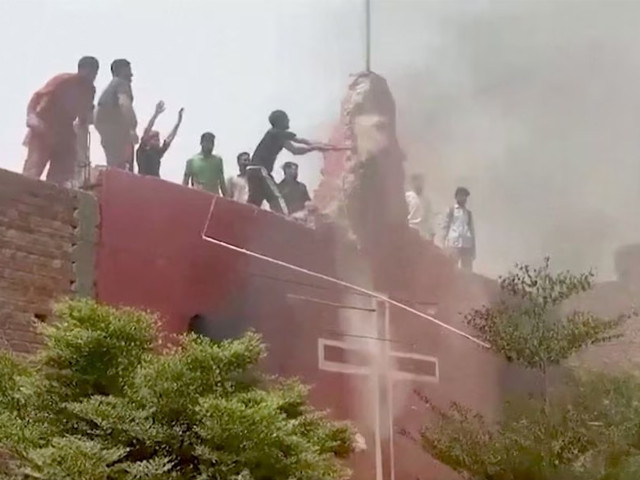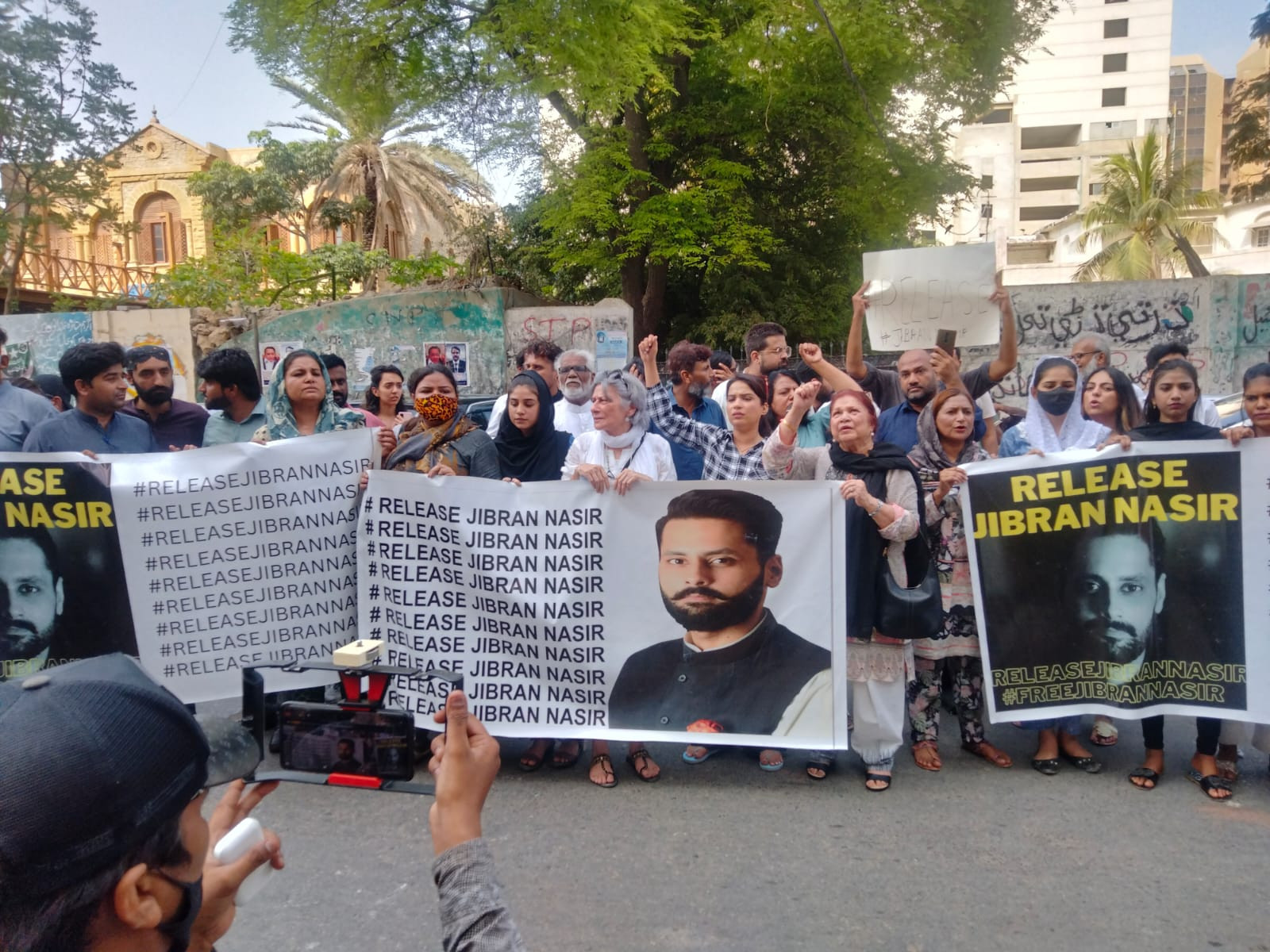
When Pakistan took one step forward and two steps back
There have been a lot of setbacks this year, some of which may end up misdirecting our future trajectory.
In my living memory, I have seen many years in which Pakistan faced terrible setbacks. Memories of 2007, when former President General (Retired) Pervez Musharraf imposed emergency and then Benazir Bhutto was assassinated, are still fresh in my mind. Likewise, all of us have neither forgotten nor forgiven what happened on December 16, 2014, a day which will continue to live in our collective memories.
As this year comes to an end, let’s recap what the year had to offer. There were highs and there were lows, but unfortunately, the latter outweigh the former and by a considerable margin. There have been a lot of setbacks this year, some of which may end up misdirecting our future trajectory unless we don’t rectify our mistakes.
There were some highs. I think some of the legislation, particularly with respect to women, such as the women protection bill, is commendable. Sharmeen Obaid Chinoy’s magnificent Oscar-winning documentary highlighted the problem of honour killing and the tragedy of Qandeel Baloch’s murder paved the way for anti-honour killings bill. The completion of China Pakistan Economic Corridor (CPEC), despite its controversies, is by and large a positive step, which hopefully will bring economic improvements. Pakistan’s cricket team performed well throughout the year, and for a brief period, achieved the number one status.
But despite these highs, there have been some big setbacks. Some cases can also be called examples of one step forward and two steps back. For example, early in the year, Pakistan finally executed Mumtaz Qadri which in my opinion was a commendable act but at the same time, the execution ended up propelling his legacy in a glorified manner. The size of the funeral shocked many who wanted a liberal and tolerant Pakistan. His funeral revealed the deep schisms in the society and provided us a vital clue that the fight against extremism is tougher and military and judicial means must be supplemented by a counter narrative which discourages such violent acts.
Pakistan’s war on terror, aimed at physically rooting out terrorist sanctuaries, continued throughout the year but problematic areas remain. Quetta’s blasts targeting lawyers showed that terrorists are still capable of mounting a major attack. Even more damaging is the recently released Supreme Court inquiry report which blames the government for having a callous attitude towards combating terrorism because of its appeasement of some of the banned militant outfits.
Murder of Amjad Sabri came as a shock as Pakistan lost one of its brightest stars. His murder too, was traced to a sectarian militant outfit, once again underlining the importance of tackling these organisations. As already discussed above, the fight against these militants must combine both law enforcement and ideological tactics. We must also counter the hate which is the source of the sectarian violence. Unless that hateful mind-set is not countered and defeated, militant organisations will continue to breed in one form or the other.
Likewise, the Christian community was targeted on Easter, once again highlighting that minorities face extra risks as banned outfits target them even more. Apart from possibility of terrorist attacks, the minorities also face general bigotry as the recent attack on Ahmadi place of worship shows. During Ramazan, Hamza Ali Abassi’s show got banned due to intense public pressure for merely raising the issue of Second Amendment and general mistreatment of Ahmadis.
Banning his show, apart from showing the general bigotry of certain sections in the society, also proves that free speech has severe limits in Pakistan. Subsequently, the parliament also passed a controversial cybercrime bill, once again undermining freedom of speech. The said bill suggests disproportionate punishments and offers a lot of room to the law enforcement and intelligence agencies for interpretation which in turn can lead to abuse of powers.
Even the drama ‘Udaari’ was served a notice from PEMRA for showing “immoral” content. In my opinion, the decision was shocking as the drama helps the audience keep faith in the quality of Pakistani television which, over the years, has turned into shallow commercial flicks. Pakistani dramas have a lot of potential, and Udaari showed the extent to which it could be realised.
From a political perspective, this year again witnessed a lot of instability. Civil military relations remained strained. Furthermore, the Nawaz Sharif government, despite enjoying a majority, kept on the defensive due to the hype generated by Panama leaks. The negative repercussions from the scandal hindered its ability to govern and also kept the general political climate extremely hostile.
The government showed tactlessness in handling the situation, and the opposition’s behaviour, particularly Pakistan Tehreek-e-Insaf (PTI), lacked maturity. PTI has made politics of street confrontation and dharnas a cornerstone of their politics, which unfortunately does not bode well for the consolidation of democracy. Due to the environment of political confrontation, the population’s trust, particularly of urban middle class, in democracy as a system of governance continued to erode and the army continued to gain more and more popularity and hence leverage.
One thing which all the political parties must realise is that democracy needs political maturity and good governance to stay as a viable system of governance. In the absence of both, it will weaken as the support for military and technocratic authoritarianism will grow.
On the external front also, Pakistan had a rocky year. Bilateral relations with India – which had received a boost in the early part of 2016 when Modi made a surprise visit – deteriorated sharply after Pathankot and then Uri attacks. Problems for Pakistan have been further compounded due to Donald Trump’s surprising win. Many in Pakistan feel that his administration will be tougher on Pakistan and would disproportionately favour India, thus skewing the delicate balance towards the latter.
On the artistic front besides losing Amjad Sabri, Pakistan also lost Junaid Jamshed. Irrespective of his views, which according to some had become increasingly regressive, Junaid Jamshed’s loss is tragic. He was a cultural icon. No one defined the cultural and showbiz landscape of Pakistan in late 80s and almost the entire decade of 90s, better than Vital Signs and their brilliant vocalist, Junaid Jamshed.
As the year comes to a close, the weight of so many setbacks certainly bothers me and I am sure many others. However, I also see setbacks as reminders that we need to get our acts together. As a nation, we actually need to do much more to fight our problems and it is better that we get serious about it.
I wish all of Pakistan good luck for the next year.




COMMENTS (1)
Comments are moderated and generally will be posted if they are on-topic and not abusive.
For more information, please see our Comments FAQ